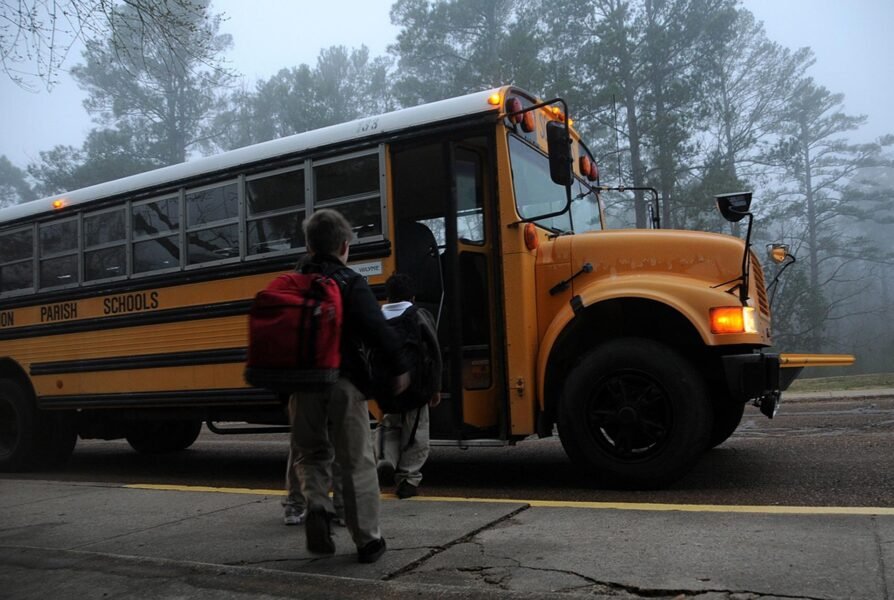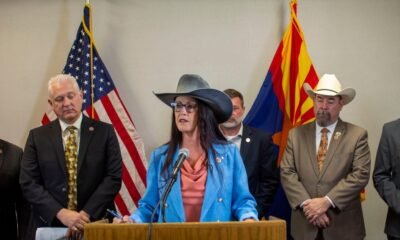Arizona law
Legislators Push for Clear Bullying Definition: Will It Make a Difference?

Arizona state lawmakers are considering a new definition of bullying for public schools as they advance legislation aimed at improving student safety. The measure, SB1508, has successfully passed the Senate and is now awaiting a crucial vote in the House.
Despite its momentum, the bill faces criticism from some legislators. Senator Mitzi Epstein (D-Tempe) raised concerns, arguing that the definition proposed in the bill is overly narrow, potentially allowing minor bullying incidents to go unaddressed. Existing Arizona law mandates school districts to implement policies against bullying and harassment on campuses, including during school-sponsored activities and online. SB1508 seeks to further refine these policies by establishing a specific definition of bullying.
The bill defines bullying as behavior that is “sufficiently severe, persistent, and pervasive,” potentially creating an intimidating educational environment. Epstein contends this definition fails to encompass early signs of bullying, which can escalate into more significant issues. She emphasized that schools need protocols to tackle minor infractions before they develop into serious problems.
Senator Shawnna Bolick (R-Phoenix), the bill’s sponsor, did not publicly address Epstein’s concerns during the floor debate. Instead, she pointed to the tragic suicide of Andrew Harstad, a 15-year-old who faced bullying at Hamilton High School, as a catalyst for the proposed legislation. Bolick insists standardized policies are essential for safeguarding students.
Critics, such as Rebecca Beebe from the Arizona School Administrators Association, assert that school districts already have the autonomy to develop effective anti-bullying policies suited to their unique needs. Furthermore, they argue that referencing the criminal code in the legislation could misalign educational context and legal standards.
Lobbyist Isela Blanc highlighted that the bill’s stipulations apply solely to traditional public schools, omitting charter schools that also receive state funds. This exclusion raises concerns about comprehensiveness and fairness in addressing bullying across all types of educational institutions.
While some lawmakers, including Rep. Matt Gress (R-Phoenix), expressed the need for addressing bullying in charter schools, others like Rep. Lisa Fink (R-Glendale) cautioned against increasing mandates for those institutions. Gress acknowledged that proposed amendments to include charter schools in the legislation did not advance due to the legislative process.
Continuing concerns were voiced by Rep. Anna Abeytia, who questioned the necessity of enacting additional legislation when existing laws already require schools to address bullying. She noted that while bullying remains a serious problem, simply creating new legislation might not effectively remedy the situation.
Conversely, Rep. Lydia Hernandez (D-Phoenix) mentioned that many constituents have reported inadequate responses from schools regarding bullying issues. She argued that clearer mandates in the bill could delineate responsibilities for school boards.
The legislative process for SB1508 continues, with the bill still pending a final vote in the House. Bolick mentioned her initial inclination to incorporate more stringent measures that would hold schools civilly liable for failing to address bullying effectively. However, given recent state government decisions, she opted for a more moderate approach.
The implications of the legislation are not trivial, especially considering the ongoing lawsuit by Jordan and Kassidy Harstad against the Chandler school district, following their son’s death. The court’s current interpretation of Arizona law presents challenges for accountability within school systems.


















